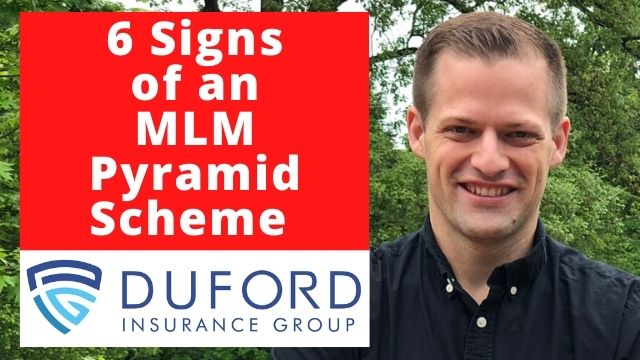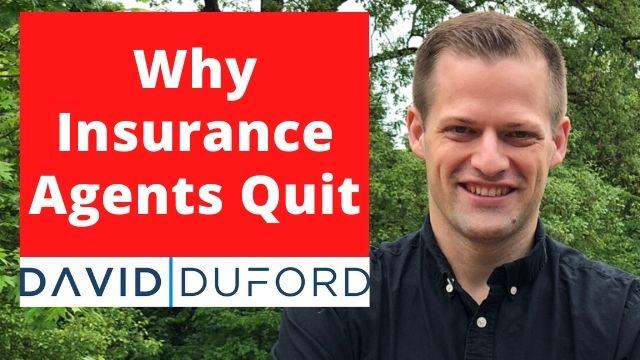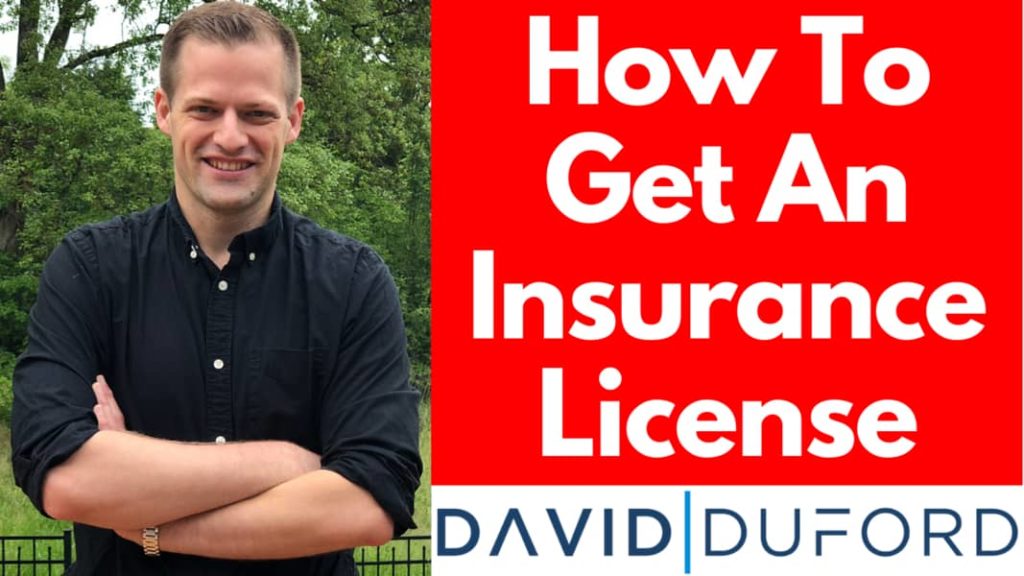The results are in!
I surveyed 103 former insurance agents on why they quit selling insurance…
And the results might actually surprise you!
In fact, many agents new to insurance are fearful, knowing they face a high risk of failure.
How many agents quit selling insurance?
There isn’t an exact number. But we figure somewhere between 90% and 95% of agents quit in their first 12 months of receiving their license.
In any case, my goal for today’s article is to show you the results of this survey covering why insurance agents quit.
We’ll discover:
-
- Why they quit,
-
- When they quit,
-
- What factors contributed to their failure, then,
-
- We’ll review first-hand commentary from these agents to provide in-depth context.
Throughout the article, I’ll provide my commentary.
Let’s jump right in!
NOTE: Are you an aspiring or new insurance agent looking for more insight on how the insurance sales industry works? Check out my free New Insurance Agent Resource Guide to help answer many of your questions (as well as ones you didn’t know you had!).
Who I Surveyed
Of the former agents I surveyed:
-
- 51.5% were selling final expense insurance as their primary product,
-
- Annuity sales, mortgage protection, and Medicare sales as a primary product took up approximately 20% of total participants, and,
-
- The remaining 31% sold some other kind of product as their primary product.
As you can see, many participating agents focused on the senior market, specifically the final expense market, which is clearly reflected in the results.
How Long Did The Agent Sell Insurance Before Quitting?
I wanted to ask my participants…
How long you sell insurance before deciding to quit?
Prior to the survey, I suspected most agents quit within the first three to six months.
Surprisingly, that didn’t bear out in the results.
Agents hang on longer than they may anticipate
Here are some of the results:
-
- Approximately 11% of those who started to sell insurance quit within the first three months.
-
- Approximately 19% quit within the first three to six months.
-
- Another 17% quit within the first 7 to 12 months,
-
- About 18% quit within the first one to two years.
-
- The remainder, around 35%, quit selling insurance greater than 2+ years after they first began.
As I said earlier, I figured most people participating would have quit early on.
But it appears more agents last longer than I and many others expected.
Why is that the case?
I can only speculate. Maybe they didn’t quit insurance sales per se. Perhaps they quit an agency but not the business.
Primary Reason for Quitting Life Insurance Sales
I also wanted to gauge what primary factors caused agents to quit selling insurance.
The pie graph below is a collection of commonly communicated reasons why agents fail at selling insurance.
Options for this question were:
-
- The business of selling insurance wasn’t a good fit.
-
- The agency I worked for wasn’t a good fit for me.
-
- I ran out of money to invest in leads.
-
- I ran out of prospects to sell to.
-
- Personal issues like health, divorce, et cetera.
Main Reason Quitting Insurance Results
What was the biggest reason agents quit selling insurance?
The agent picked the wrong agency!
And a total of 1 out of 3 agents stated that as their primary reason for failure!
Second biggest reason…
I ran out of money to invest in leads.
26.2% voted a lack of money for leads as their primary reason why they quit.
Less important reasons agents quit selling insurance include running out of prospects, personal issues like health problems, and discovering the business wasn’t a right fit.
In a way, it’s sad to hear these reasons because the reasons they quit are variables somewhat under their control, had the agent been properly informed of the realities of selling insurance.
Secondary Reason For Failing Out Of Insurance
As with all things in life, there are usually multiple reasons why people end relationships, both in personal and business life.
Death by a thousand paper cuts, as the old Chinese proverb says. =)
I wanted to find out if there were multiple reasons why people quit, so I asked the same participants for a second reason for quitting.
Quite interesting results:
-
- The number one secondary reason agents quit selling insurance was that they ran out of money.
-
- The second most common secondary reason agents failed selling insurance was that they ran out of prospects to sell to.
-
- The third reason was the agency wasn’t a good fit.
-
- And the fourth was personal issues.
A Better Agent Experience
The next question I wanted to ask was what factors could have contributed to a better experience selling insurance.
For example, when recruiting agents, it’s important to develop a program that gives new agents the best chance of success.
While there’s no perfect program, nor can anybody guarantee your results, it’s important as an agency to think this through. Your agents commit their career to you, and in return, you should commit to them.
So the question I asked was, looking back on your career selling insurance, what, if anything, could have helped prevent you from quitting?
For this question, I asked agents to select all that apply. Essentially, select all the factors you think made a big difference.
Here are the results:
-
- The number one response was better insurance leads.
-
- A close second reason was the agent wishing they had saved more money to weather tough months.
-
- Third was better agency selection
-
- Fourth was access to better sales training.
-
- Last but not least, “I should’ve sold a different product” ended up being the least significant reason for quitting.
Feedback From Agents
Now that we’ve covered the survey questions, I’m going to take some time to review some of the comments that were left.
These comments are anonymous, but reading them is extremely heplful in providing context.
Why? Because hearing from people who quit selling insurance is provides a sober analysis of what difficulties agents face.
As I go through these, I’m going to hit on some major points that I think are relevant.
“I wanted more support to help me through the tough times.”
Most agents define “tough times” as those periods where nobody wants to buy, no one’s interested, you’ve ran 10 appointments and nobody’s bought, and you’re about to lose your mind.
This is why it’s so vital as a new agent to find an agency that actually supports and mentors you.
You want an agency that will have some kind of involvement with you, answering your phone calls, text messages, and emails.
It’s not enough to join an agency that has a hotshot producer but little to no support. You likely will need some level of support. Maybe a lot, maybe a little. But it’s good to know that it’s there if you need it.
“I failed to do my research before I got involved.”
This is a big one.
I don’t want to put words in this person’s mouth, but a lot of agents get recruited into the insurance business because of somebody they meet.
Perhaps it’s a friend or family member in the business that introduces them to it. And they don’t do a lot of research because of that.
It sounds good. It sounds appealing. It’s kind of the right time and they jump in.
But… before they know it… what was promised and what was shown is not like anything in the real world.
When all is said and done this is why I’m doing this video. To give you the ability to do due diligence. Because there are so many insurance MLMs out there that recruit like this.
Do Your Due Diligence!
They don’t really want you to know the whole truth, but if you don’t ask, you ain’t going to know, so due diligence is king.
Slow down, find the agency that makes sense for you, that matches what you’re looking for.
If you’re wondering what that is, have a look at my book The Official Guide to Selling Insurance for New Agents.
It’s three bucks on Kindle, 10 bucks for paperback on Amazon. It will walk you through all of the landmines and obstacles to avoid and it’s well worth the investment.
“While the agency was misleading as far as training, I want and need good training.”
Effective insurance sales training is important.
If you feel that when you go in for an opportunity meeting or an interview, that the group meeting talks more about drinking Kool-Aid, walking across hot coals, and flagging down anybody with a pulse to recruit to your downline to make passive income… odds are you’re about to join an insurance MLM.
Likely that kind of response comes from those agencies that focus more on the recruiting and less on the substantive training. So training is critical.
Do your research and make sure the agency you’re thinking about joining provides a training program that actually will help you become a top producer.
“Zero hand-holding, zero lead by example, zero leadership that way. It was 99% fluff motivation and bring your uncle down for a meeting. I had no idea the stagnant pool I was surrounded by others in the same boat. Only one or two people in the whole room making sales. Most of us not even licensed, just a cesspool of mediocrity, but so much fake pumping I couldn’t tell.”
Another example of an agency without a support system in place.
If you see that, if you hear that coming out of conversations with employees and managers, beware.
I can’t say it enough – do your due diligence!
A lot of reasons agents quit is because what they were shown doesn’t actually pan out in real life. And agencies have a tendency to pump up the good about selling insurance, but none of the bad.
The truth is that the insurance business is an awesome business. It’s awesome for the right person. It’s certainly not right for everybody.
But like anything in life, there’s going to be good and there’s going to be bad.
I have always felt that somebody like myself that runs an agency, that recruits agents nationally through YouTube, should inform you of the good and the bad to give you a sober analysis.
“Agencies get you caught up with promises and you go into debt buying leads. And when chargebacks happen, you’re not fully prepared for what you were not told by the company – that they will withhold till caught up and you’re still buying overpriced leads.”
Bad training ruins an agent’s perception of sales.
Unfortunately, that’s how the business works. If you’re looking to get into this business, if you sell a policy and the policy lapses, you owe back a portion of that commission that went unearned. That’s what’s called a chargeback.
I tell all my agents to expect this. The truth is, it’s just part of the business. And a lot of people don’t know that until they think, “Why am I not getting paid?”
And the agency responds, “Oh, the policy lapsed so we take your money.” The agent is left wondering “What?”
The moral of the story is that you want to know this before getting started, right.
“Old and dead-end leads.”
If you’re into a marketing and sales system, you want to make sure that the leads you get are fresh and exclusive. This is a personal preference of mine.
While you definitely can get sales from old leads, you can’t get them when they’re dead. You’re too late.
Ideally you want to work fresh and exclusive leads. Basically what that means is that the leads come in, they’re fresh, they’re yours and they’re never resold. They’re exclusive.
You’re contacting prospects at the peak level of interest. Whereas if you wait and you’re in a position where you get the individual six months, 12 months later, they’ve likely sent off other cards, replied to other ads on Facebook, been solicited by a bunch of people and are less inclined to do business.
Again, not impossible to sell them, but if that’s all you work, you’re leaving a lot of opportunity on the table.
Get Fresh & Exclusive Leads
Personally, as an agent, the way I train my agents that work with me is to go after fresh and exclusive leads because that gives us the best odds of success.
If you’re looking at an agency that provides leads or sells you leads, ask, “Are these leads fresh? Are these leads exclusive? If not, how much does it cost to get those leads?” Because those really are the ideal leads to work with.
Companies will not help you get prospects if you don’t already have some or are really good at finding them.
When you look at an agency and you want to prevent yourself from quitting, you’ve got to have some type of guidance in creating an interested pool of prospects. A pipeline, as we call them.
If your company doesn’t teach you how to do it, or if you can’t wrap your head around how they do it, find another insurance sales opportunity.
You’re not in the business of selling insurance unless you’ve got TOO many people to see. That’s the ideal state. You want to get people to see and eventually have a lot of people to see.
But the cornerstone to that is people to talk to. When you look for an agency to work with, how are you going to get leads and prospects to talk to?
Mindset
A couple of comments here relate to mindset – something that takes a lot of honesty to admit. I think this may be some of the most important elements covered here in the survey.
“I firmly believe it was a mindset of not believing that I could do this, even though I know people need life insurance.”
Before the agent in this case started, there was already this obstacle inside their own mind, the belief that they could not do it.
And I would question, how can you ever contend to be successful if you doubt yourself?
The next one is even more telling.
“I did not understand that people who searched the internet were not yet committed to buy. I did not understand my responsibility to qualify a prospect before chasing them. I did not thoroughly understand my products and their limitations. I did not understand how emotionally dependent I am on being accepted. Selling is all about passing through rejection to find a prospect who will talk to you and to find someone who will buy from you. Sales is very hard work. Perhaps the hardest form of work there is.”
I don’t know much else I could add to this.
I would suggest to the agent who placed this out there, that this level of brutal honesty means that you actually have a chance in this business because you know yourself.
That’s really the core of this. And I would plead with you to find a way to get back in. Because if you know your pre-existing limitations, then you have a chance to fight them.
Money Issues
Money issues always a factor with a lot of agents quitting.
“My family needed money. The needs of the money were greater than the income I could produce and my backup money was virtually nothing. I’ve actually found a market or two that needed my know-how, but I didn’t have the cash needed to keep her going.”
This is one of the saddest reasons agents quit.
They can’t make it work financially because their model depends on purchasing leads. Certainly I was in that position. I went through that when I failed out the first time.
It’s so important to be financially prepared to weather the storms. That is a big factor in why people quit.
They start to learn the business. It takes longer than they think it does. And they run out of money.
That’s not the only reason why they quit selling insurance, there’s certainly other reasons why. But money is important. Especially if you depend on a purchased lead system.
You don’t want to jump into this business with your last paycheck and no savings and no other way and think that you’re going to make it. There’s always Hail Mary’s that work, but the majority of them don’t.
Build A Big Bank Roll
I like to tell agents, think of ways to be creative, save up your money, take your time if that’s what it takes.
Creatively finance your endeavors. Borrow money from your parents if you have to, if you can. Sell off your gun collection, like someone I know did.
Or like me, I had one last credit card to put four grand down and that was it. And I was tapped out for tens of thousands of dollars on my other cards. This was it.
I’m not advising you to do that, but it’s just what I decided to do. I figured, what the hell did I have to lose? This was my opportunity.
You’ve got to be creative. But the key is to keep going. Manage your budget and be sure to not spend too much money on frivolous stuff, especially in the early years as you develop your renewable stream.
You have to eat of course, but as Dave Ramsey says: rice and beans, beans, and rice. He was right about that. I think especially getting started, the less you can spend, I think the better chance you have.
Final Thoughts

Do Your Due Diligence
I think the biggest thing you need to do when considering a career in life insurance sales is do your due diligence. I preach on this a lot.
If you’re going to join an agency, you have to do your time to figure out if it’s a good fit for you, because the consequences are disastrous.
And if there’s any evidence of that being the case, it’s this survey. You really have to make sure the agency you’re going to join is a good fit for you.
Now, I didn’t say perfect fit, you’re never going to find a perfect fit, but you need to find one that’s close enough in your values that you can align with over a long period of time. Because if it doesn’t fit, you’re not going to do well.
I even tell this to agents who find me on YouTube and decide that they want to work with me.
I want them to know upfront what they’re going to expect from me, what I’m good at, what I’m not good at, exactly how our relationship is going to work.
I want them to know that upfront because I don’t want to waste time with agents who feel like I abused them because I didn’t clarify my intention.
You want to find an agency that takes the time to explain things to you. Because, to me, in my opinion, it saves a lot of drama, effort and wasted time if you do this work upfront.
So please, do your due diligence. Find out what’s going to work best for you.
Have Enough Money Saved
And I think the second thing here that’s really important that kept coming up in some form or fashion, is you have to make sure you’ve got enough money to run your business.
I would imagine this is probably an issue, not just in the insurance business, but all businesses, all entrepreneurs. Having cashflow to continue to fund the operations of a business can be a challenge.
For the insurance agent, really the biggest factor to that is leads. Which is why we’ve seen a lot of people say that the leads ran dry.
It’s important to make sure you come into this business with enough money.
How much money is enough to start selling insurance?
It just really depends on what your personal budget is, what the average lead cost is.
I really think that in the business of insurance sales, you can do this for a month or two and be profitable with most products. Some less so than others by default because they’re more renewal driven, like Medicare.
With a life insurance product, you should see 3:1, 4:1 return on your investment in the first month or two. And you should continuously sustain that.
You’ll have months where you’re off, of course, and you’ll have great months too.
But if you’re not seeing that out the gate, then it’s likely this isn’t a good fit for you. And you probably shouldn’t throw good money at a bad opportunity. It doesn’t make sense.
Agents Should See Success Quickly After Starting
Most agents who are successful come in with at least a month’s worth to two months worth of leads at a minimum. If they’re going to have success, they’re going to have it at that point.
Because if they got enough money for a month or two months of full-time effort, the likelihood is high that if the opportunity is there, they’re going to be profitable and they’re going to continue to be so.
But don’t fall for the trap a lot of these big MLM insurance companies push. They may claim all you have to do is buy old leads from two years ago and you’re going to make it rain money. That’s stupid. You really have to treat this seriously.
I’m not blaming agents who fall for this as much as the agency because they say it’s possible and they encourage agents to go for it and then one guy out of a thousand makes it.
The truth is you really need to look at this seriously, slow down, save up, have money set aside.
And I’m telling you this from personal experience too. Having money in the bank makes life much easier as a salesperson running an insurance business.
Summary
I hope you enjoyed this look at insurance sales and why agents quit. It was very illuminating even for myself.
I learned a few things, too, especially that agents last longer than we expect and it’s really important to have collateral to purchase into a quality lead system.
If you’re considering joining an agency, make sure to take your time, do your research, and pick an agency that is going to be a good fit for you!
If you want a second option and an agency that’s honest, transparent and straightforward, check out how my agency works here as well as review my FAQ page.
I recruit and train insurance agents become top producers in final expense, Medicare Advantage, and annuities. Training, support, coaching, and mentorship with quality marketing and sales systems is the cornerstone of what I do.
Feel free to leave a comment below. Feel free to share your story of quitting insurance sales.
Thanks for reading!


January 03, 2023

January 03, 2023

January 03, 2023